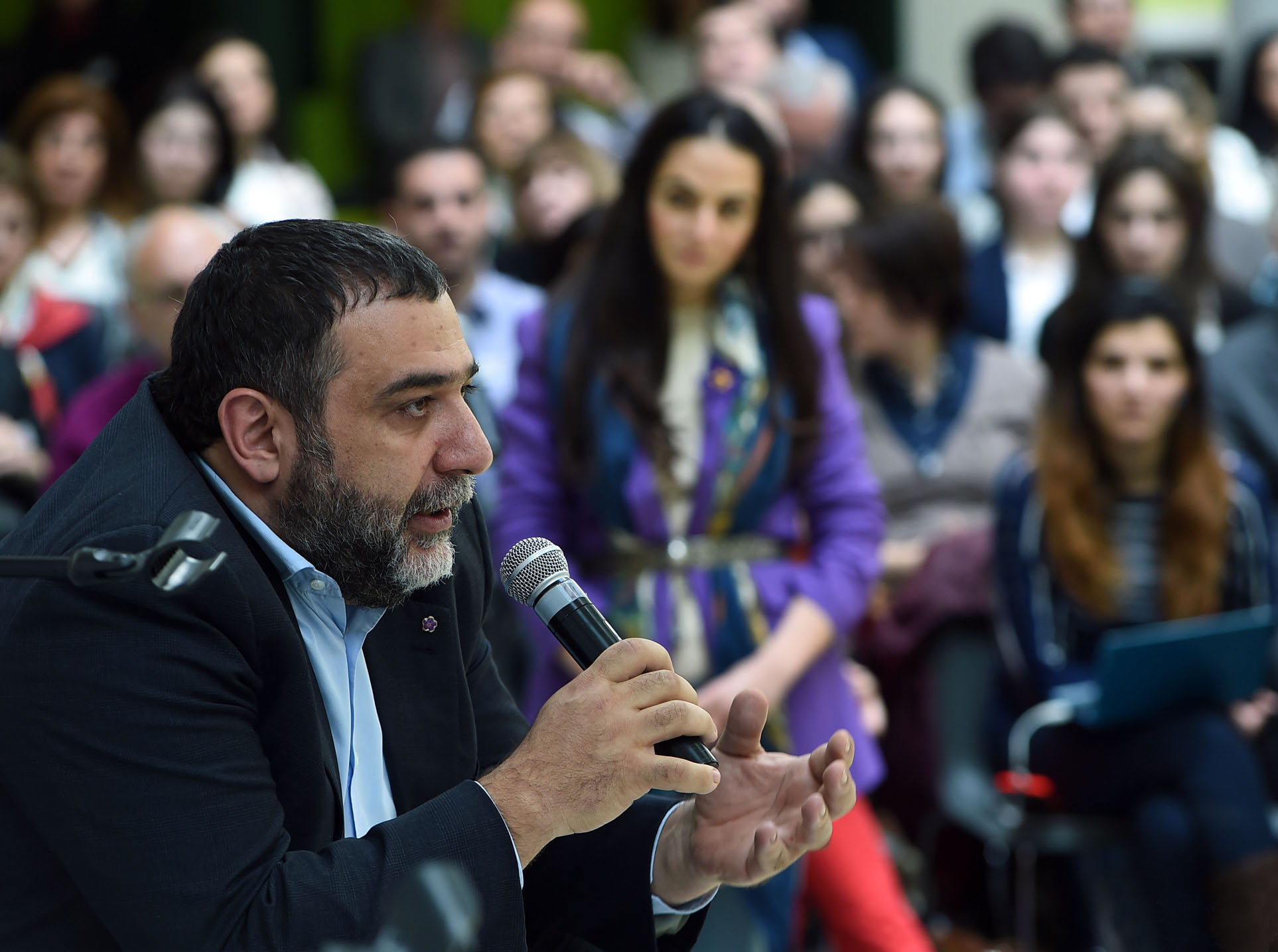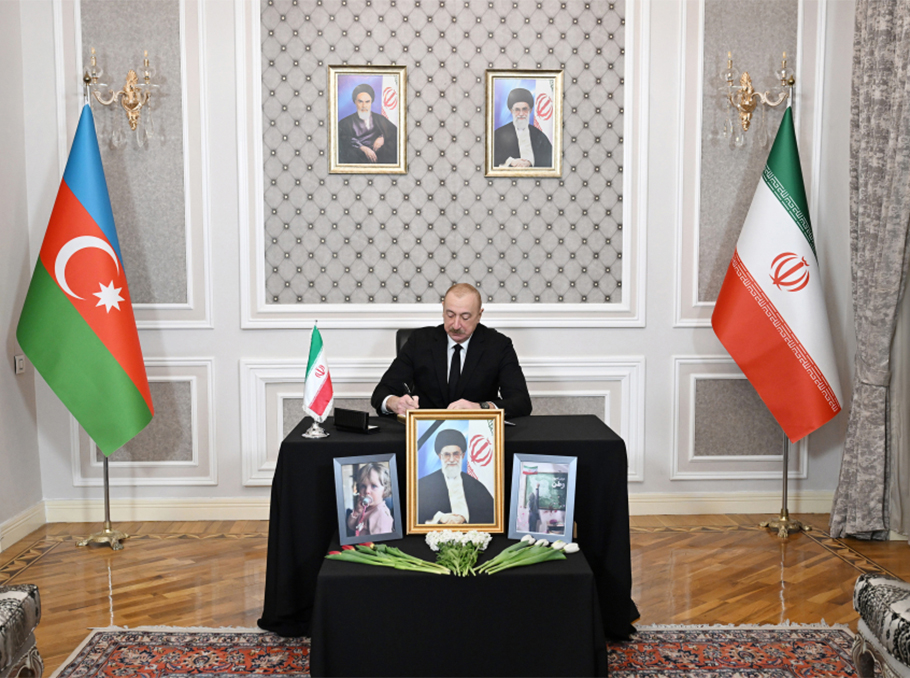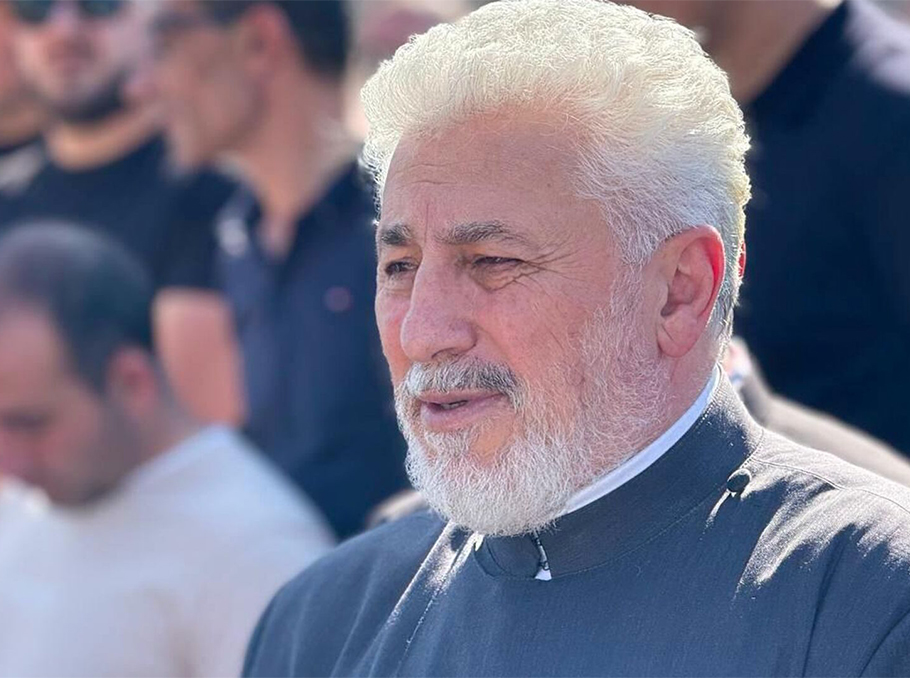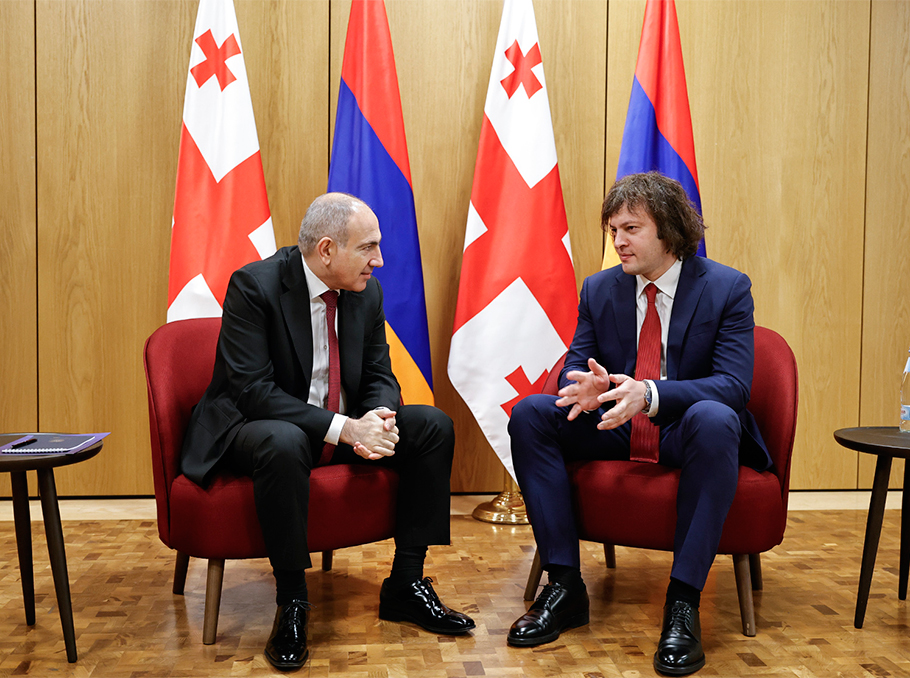The text is based on a speech given by Ruben Vardanyan, on 19 November in Los Angeles, at an event celebrating the 25th anniversary of the American University in Armenia.
Good evening, dear friends. I am thankful to be here this evening with you to celebrate the 25th anniversary of, what I believe is, one of the most important events that the “new Armenia” has witnessed. As a representative of the global nation, it is very symbolic for me to be here: I was born and grew up in Armenia, spent the larger part of my life in Russia, and today am proud to be standing before you here in LA to talk about the American University in Armenia.
While some of you might be familiar with my biography, I would like to say a few words about myself which might better explain why today’s anniversary is so meaningful to me personally. My father was a professor, as was my grandfather, and as such, education was always one of the main interests for everyone in our family. It is due to my family heritage that I firmly believe that to be a teacher is still one of the best and most important professions to this day and, despite not entering the field directly, is the reason why I devote so much of my time to it from a business perspective.
As you may know, I was raised in the Soviet system, which is very different from the world we live in today. I then moved to Moscow just as the Soviet Union was collapsing and became an investment banker in the “new Russia”, an environment which could only be described as “wild capitalism”. I worked with international clients, and learned how to operate in systems with different standards, where everything was in a constant state of change. I will say that one of the most important realizations of my journey then, was understanding that you need to keep your identity, to know exactly who you are, but at the same time to learn from the situation around you in order to be able to adapt to it.
Today I also want to pay tribute to the brave and visionary people in the beginning of the 1990s who realized that in the new Armenia, the main challenge will not only involve ensuring stable electricity and water supply, but that education will be the key to a sustainable future for Armenia. What Louise Simone Manoogian, Mihran Agbabian, Stepan Karamardian, Armen Der Kiureghian and many others within the AGBU and the Armenian government did was unbelievable. It is really something which we need to look back on and learn lessons from again and again. They exemplified the importance of what it means to be bold with your vision, regardless of how crazy it might seem to others and the importance of not being scared to do what you feel is right.
Today I want to talk about three things: the challenges and opportunities that we are facing, the importance of education and the legacy we leave behind.
A nation at the crossroads
The problems that we’re facing are not specific only to Armenia – we are witnessing a worldwide transformation within our lifetime. Not only has the Soviet Union collapsed, but China has joined the world economy, and now Iran is becoming a part of it, meaning North Korea and Cuba (The presentation was made before the death of the Cuban leader Fidel Castro became known) are the only two remaining countries which are yet not part of the world economy. In addition to this, we are witnessing technological disruption, which brings with it large-scale social change, including the magnification of social stratification and the polarization of the political process. We are seeing change occurring in Europe, the Middle East, Russia, Ukraine, and of course, what we witnessed in the US election a couple of weeks ago is only a further illustration of this change. All this shows that transformation is happening very fast and that all these changes pose significant questions to all of us. We are all asking ourselves what is our near future going to look like? What will the future be like for our kids? What kind of a system will we live in? These are the types of questions that scare people and that is why people’s reactions can sometimes be quite unpredictable and reserved. As a result, many people become withdrawn, which amplifies their feelings of isolationism and xenophobia.
Against the background of these problems, along with many others, I would like to address our history, the history of Armenia. Historically, we’ve often been under significant pressure. Bordering between civilizations – Christian and Muslim, between the Persian and Roman Empires, between the Ottoman and Russian Empires, we’ve been under pressure to always survive by ourselves and to stay attuned to the changes that were happening around us and to be ready to respond in some way. However, today, the greatest threat to our existence comes not from outside, but from within ourselves.
Armenia is at a crossroads. And not just the country, but also the Armenian nation. During the course of the 20th century not only did we witness the Armenian Genocide take place in the Ottoman Empire but after that followed the Egyptian revolution, the Iranian revolution, the Lebanese war and what is happening in Syria currently. These are the main places where the Armenian diaspora has been holding onto its heritage of hundreds of years – but unfortunately we were pushed out and now we live in other countries like Canada, the US, France, Argentina, Russia. We must ask ourselves, what will our response be? How do we as Armenians be a nation that keeps looking forward? A nation, which continually shows its best qualities through our achievements, that continues to be pioneering in many things which we did throughout civilized history and a nation which always put education first.
I think it’s a very important element, because our two main drivers have always been pride and fear. And I believe that pride in what we did, how we did in history, were driving us for many, many hundreds of years. But the question is, what are we proud of today? Proud of a successful Armenia? Or only of our own family’s success? Proud of our contribution to other countries or proud of how we, as Armenians, can deliver something to the world, not only caring about our own problems and issues that happened to us but also trying to respond to global challenges?
The answer to such critical moments in the past was our pioneering spirit. We were one of the first who accepted Christianity as a state religion, developed our own alphabet, who began to print books shortly after the invention of the printing press. We were unafraid to move out of our comfort zone and discover new things. We travelled the world and became one of the first to open trading routes between Europe and Asia. We’re a nation that is not scared to do something differently, not scared of out-of-the-box thinking, not scared to venture outside our comfort zone. This is something we’ve been doing for thousands of years, and this is something which instils us with pride in our nation and strengthens our sense of belonging to it. A feeling through which many of the young generation of Armenians, who live in the diaspora but may no longer speak Armenian, still consider themselves Armenian by choice.
The question we are asking ourselves today is whether what we’re doing today is helping us feel that we’re continuing in the same way, or if something’s changed and we’re becoming different? Because we are now living in much more comfortable conditions in countries where there are no threats of destruction and violence against our values and way of life. And so we ask ourselves, what are we doing in these societies? How are we adapting? Are we assimilating or staying the way we’ve been for thousands of years, keeping our identity while at the same time being the good citizens of the countries we now live in?
I think it’s an Armenian story, and what’s going on in Armenia is becoming very critical for all of us. What happened at the beginning of the 1990s – the earthquake, the economic blockade, the war – caused all of us to experience fear. We realised how quickly we could lose our homeland and we helped. We helped a lot. We helped despite all the problems, we tried to provide support – and the American University was a very good example – by not only helping economically but also by investing in the future of Armenia. But today’s Armenia – and I am sorry to be blunt – is mediocre. It’s okay. It’s average. Nothing bad enough is happening here for you to feel fear but nothing good enough is happening for you to be proud either. And the question is, what do we need to do to make Armenia fulfil the destiny that we’ve been dreaming about for hundreds of years, and become, despite our small size, a center which can unite Armenians from around the world together and act as a cultural bridge for the entire region.
The question we are asking ourselves – what kind of Armenia do we want to build? – is becoming more and more important because today, unfortunately for most of us, Armenia looks like a place that you’re obliged to help, like a tax payment or an additional obligation. I believe this is wrong.
Armenia for us needs to become both a physical and spiritual investment for our future generation. It’s not a question of simply having to help somebody who is in a bad state. We need to invest in the future of Armenia because a successful Armenia will help our success here, and vice versa. And we need to accept this formula because otherwise we will lose Armenia and we will lose ourselves here. This is my strong belief.
These, and other challenges which stand before us, also provide us with unique opportunities, and only by coming together can we take advantage of them for the benefit of the Armenian world.
The key to success
The key to the success of Armenia will be education which meets the demands of the information era, and an environment where talented and educated people can reach their full potential in their own country. We have to create all the right conditions so that people receiving an excellent education have a place in society because today in Armenia, the prospects for people like this are actually quite limited.
As a people, we have been successful in education for thousands of years. The second largest household expense of an Armenian family has always been education. We believed in education and we readily invested into it. We spoke three languages at a time when nobody could write or read and most of the nations could barely speak one language fluently.
Today we’re in danger because we’ve lost this key competitive advantage. Armenians in Armenia used to speak Russian, now they barely speak Russian, they are learning English but they are not very good at it. They no longer speak Persian, Turkish and Arabic. In Beirut, an Armenian taxi driver would speak five languages and it would be normal. Today in Armenia, most of our elite can’t even speak two languages, not to mention three. That is why modern education is not only an important investment for the future, but an imperative investment for now.
In the 21st century education is becoming critical for success – not only socially but also economically. Land is no longer the main asset. It’s not about how much land you have or how much oil or how many other commodities you have. The main question is, how many smart people live in your country? Elon Musk was born and grew up in South Africa and he didn’t go to the Czech Republic, Russia, Kenya or France. He went to the United States. We have our own examples, David Yang being one of them. And the question is, what do we need to do, what kind of country do we need to build so that, despite being small, we’re able to retain our own and attract other talented people from the region to come and study in our country and stay in our country. I think it’s one of the key challenges we need to respond to – understanding that education, for all age groups allowing people to learn and improve their skills throughout their entire life, will be one of the key drivers of the future of the world, and that we have a competitive advantage.
We are a smart nation. We are a nation with a vast heritage of smart, dedicated people who have and continue to invest in education. The American University in Armenia is a great example of the success of this model and the last 25 years have shown how important it is to have institutions of this type established in Armenia with other examples being the French Universityand Russian University. Soon, with the assistance of the Chinese government, a school in Armenia will be opened, granting Armenians the ability to intensively study Chinese. We have a competitive advantage in Armenia, a unique opportunity today – different universities with different standards. We have UWC Dilijan, Ayb, TUMO –real projects that demonstrate that not only can we become an educational hub for Armenians from around the world, but also act as valuable contributors the global educational system, in spite of our conflicts with Turkey and Azerbaijan. I think that only through integration, only by becoming a regional hub, can Armenia truly become successful.
I’m a strong believer in education, I’m a strong believer in the fact that education is one of the key drivers of success for the future and also I believe that it is time for education in our country to advance to the next level. The American University in Armenia needs to become an institution that not only Armenians who live in Armenia and diaspora Armenians want to study in, but also the university in which non-Armenians from around the world aim to come to. This is a new standard that we need to set for ourselves.
In 25 years’ time, when we meet again to mark the 50th anniversary of the American University in Armenia, I aspire for us to celebrate a new milestone of having the university become the institution of choice for not only Armenians but all students around the world. This aspiration is one of the reasons my wife and I established UWC Dilijan together with many of our colleagues and friends. Today we have kids from 72 countries studying in Armenia through a special scholarship system that attracts children from all over the world. I hope that as one of the key educational institutions in Armenia, AUA will continue to lead the way of making Armenia an educational destination for students around the world.
Unfortunately, the crisis in the Middle East is happening in the very same countries where our ancestors took refuge and settled after the Genocide. What is happening in Syria today is a repeat of the same stories and we’re facing a similar situation. We must not forget that just a hundred years ago, when we were in a similar plight, many Arab families helped us despite not being very rich or successful. In response to the difficulties facing the people who help and saved our grandparents, last year we established a special scholarship fund for a hundred kids, who have been affected by war and live in conflict zones to study in the UWC system, including the college in Armenia. These include students from Syria, Lebanon, Egypt, Jordan, Israel, Palestine, and refugee camps in Lebanon. Today I am proud to announce that we have also established a special scholarship fund for kids from Syria, Lebanon, Iraq, for non-Armenians to study at the American University in Armenia.
Education is one of the most conservative spheres of all, and in some ways this is exactly as it should be. But nevertheless we have to find the correct balance between the conservative approach to education and the new requirements of an educated person in the modern world.
Remember the past, take pride in the present and create the future together
Speaking of legacy, I want to pay tribute to the people who were the key supporters of the Armenian world from the 20th century until today – Boghos Nubar, Calouste Gulbenkian, Alex Manoogian and his family and Kirk Kerkorian. However, it’s not only a question of needing to remember and respect their legacy and pay tribute to these people. We need to understand our duty to support their legacy with our actions. They created a lot of projects to try to preserve the Armenian nation but these projects need to be supported by today’s generation because what we’ll leave to the next generation depends entirely on us.
We’re growing up in a non-war, non-crisis situation and our kids feel less pressure to support their Armenian heritage. Some of them are questioning if we need to stay on the Armenian route. And we’ll stay on the Armenian route, like I said, only if we continue to be proud to be Armenian and understand that it’s important to support our Armenian heritage and to honour what was done by previous generations.
I think it’s important for us to collaborate, to come together. It’s one of the most difficult parts for all of us because we are survivors. And survivors, unfortunately, are always thinking about how to survive. It’s a different mind-set and because of that we need to progress from survival mode to prosperity mode. This is a very difficult mental transformation for us. Survival mode means thinking small, being family-oriented, having a very closed mind-set, not having big ideas, not going for big projects and instead trying to build step by step, like we’re building a house – adding one more room at a time, only to eventually discover that you have to go through the kitchen to get to the bedroom.
This is the typical Armenian way in Armenia. This is why we need to change our mind-set, despite it being difficult. Because at the end of the day, it is not a question of money. We have made an analysis of what Armenia needs to prosper and in the next 15 years, we need to invest $8.5 billion. This number looks crazy and people would say it’s unbelievable and we cannot do it. But I want to tell you that in the last 15 years, different people and different institutions have invested $5 billion in Armenia. The only difference is that there has been no coordination, no collaboration. When you are in survival mode, you’re just trying to stay afloat by yourself. Only “the family” supports you and you don’t trust anyone. We need to trust each other.
Collaboration means compromise. We are very individualistic. Each of us believes that their ego is the number one priority. Our elite today is responsible for ensuring this collaboration, which is one of the key elements of the future success of our nation. I believe that well-known and respected Armenian businessmen such as Vatche Manoukian, Samvel Karapetyan, Eduardo Eurnekian and many others, various party leaders, artistic and intellectual elite and leaders of the Armenian government can find points of convergence with each other. We cannot be successful without collaboration and we cannot be successful without coming together and trying to find a platform to help us create a new Armenia and a new Armenian world.
We all remember Kennedy’s words, “Victory has a thousand fathers, but defeat is an orphan”. We’ve been orphans for so many hundreds of years we are not ready to be parents. We need to learn that we’re winners. We are the winners of the Artsakh war, it’s us who won Armenian independence. I want to remind you of that. And what does it mean to be a winner, to be a prosperity thinker? It means you’re thinking big, you have big ambitions, but also you’re trying to understand what your combined advantage is, how you can leverage that advantage, how you can bring us all into the global world, which is very, very competitive.
No one is waiting for us. No one is thinking, oh, when is Armenia going to become prosperous? Nobody is willing to look at us and help us become prosperous. It’s our duty to make Armenia prosperous, it’s our duty to make the Armenian diaspora successful in different parts of the world and help Armenians here, in Armenia, as well as Armenians in Syrian, in Argentina, in America or Canada, and whichever corner of the world they might be in feel that they belong to a large global network.
I think by now, most of you have heard about the open letter in the New York Times about Global Armenians which I co-wrote with a group of Armenians around the world. As I wrap up my speech today, I want to say that being a Global Armenian is not just a statement, it’s a call to change our mentality, to change our mind-set, to change how we behave and how we all do business.
We have to do this together and as soon as possible. And I hope the Global Armenian movement will be a step towards the new type of relationship because we don’t have that much time. The world is changing dramatically and the world is changing very quickly. The only way we can become successful is if we come together, invest in education, invest in our own future, understand what our key competitive advantages are.
We must make Armenia a regional hub for education, healthcare, technology, finance, tourism, make the Armenian diaspora feel that this is an investment and not an obligation, make the new generation feel proud to be Armenian and not simply obliged to be Armenian because their grandfather or father was Armenian and feel that what you’re doing is paving the way for a better future. I would like to finish my speech with a sentence once said by Peter Drucker, “The best way to predict the future is to create it”. Let’s create our future ourselves, drawing from our great past, rather than allowing someone else to determine it for us.





















